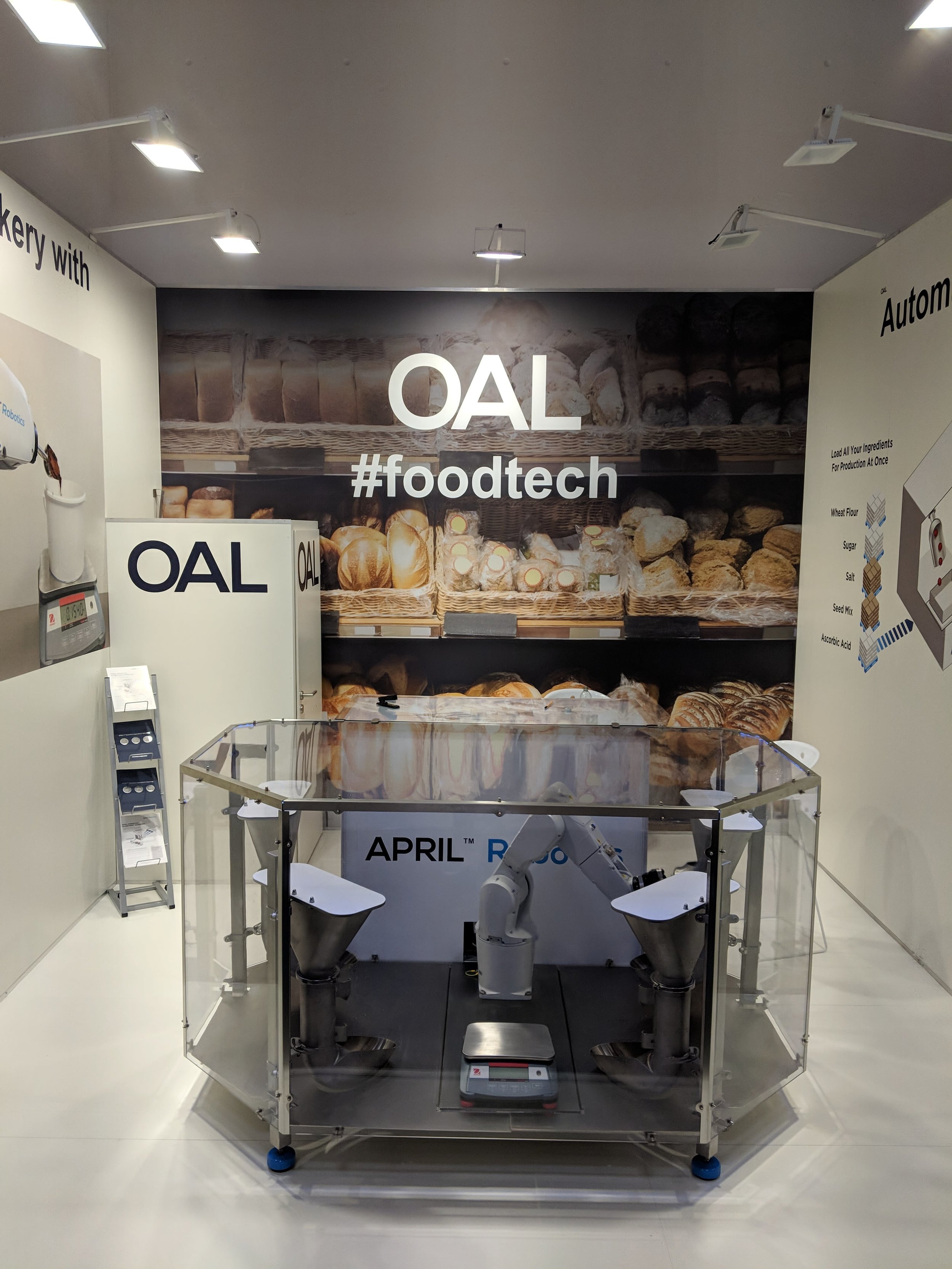Top 3 trends from iba 2018
Our team is back from the iba 2018 show, and what a show it was! As you can see, we certainly had a lot of fun meeting with many of our current customers and impressing potential new ones with our APRIL™ Robotics Ingredient Handling system!
The 24th edition of the global bakery show attracted 76,800 visitors from all over the world: we spoke to people from Australia to Argentina, and India to Italy! Overall the mood was buoyant at the show, with many positive about the industry’s economic development, echoing Confectionery Production’s forecast that the bakery product market is set to reach $530 billion by 2023. Our very own Jake Norman, Innovation Manager, was one of the 72 speakers at the new iba Speakers Corner, sharing our insights with visitors eager to stay ahead of the curve and make the most of this industry growth.
If you didn’t get a chance to make it to the show, we thought we’d share with you our top three trends. Read on to find out!
Trend 1: Rising labour costs
The rising cost of labour was on the tip of the tongue of everyone who came to speak with us at the show. In some regions, the hourly rate required to attract staff is becoming unmanageable, while in others, it’s impossible to fill positions as companies are unable to meet wage expectations. Even in areas where labour costs have not traditionally posed an issue, there was a definite shift towards future-proofing bakeries to mitigate any forthcoming wage increases that could affect profits. It’s clear that bakeries must seek out alternative methods of increasing the efficiency of their current processes to mitigate the impact of these rising costs.
Trend 2: Health & safety
Many of our visitors mentioned the evolving health & safety regulation that impacts the bakery industry. Health & safety experts around the world are highly aware of the risks posed to bakery operators who must work with powders, such as flour, enzymes and starch. It was a key topic for the Health & Safety Executive at the Federation of Bakers’ Conference 2018, but the UK is not alone in this concern. With occupational asthma, rhinitis and dermatitis all potential consequences of the weighing and handling process, regulators are cracking down on bakeries and setting lower maximum exposure limits.
Many bakeries are concerned not just with the health of their workforce, but also the potential expense that could be incurred by implementing further safety measures or the impact of the aforementioned higher labour costs if more employees are needed to reduce operator exposure time. There’s no getting away from powders in the bakery industry, so companies require a cost-effective solution to ensure operator safety without impacting the bottom line.
Trend 3: Digitalisation
Wandering around the many halls of the iba, it was clear to see that digitalisation had taken over almost every stand. Digital solutions and processes were unanimously recognised as the key development needed in the bakery sector - and not just at the packaging end. Robots carrying out tasks from pick and place to rolling dough are paving the way as this traditionally conservative industry starts to open up to the possibilities of the digital revolution to maximise profits, improve traceability and increase product and employee safety.
Toast of the trends
Three seemingly disparate trends, but one solution: autonomous ingredient weighing and handling allows bakeries to tackle all three.
The APRIL™ Robotics Ingredient Handling system is the world’s first robotic micro-ingredient weighing solution. Easy to integrate into existing bakeries, it allows you to conduct unmanned operations, helping to reduce your exposure to rising labour costs or freeing up your workforce to complete more value-added tasks. Unmanned weighing also helps to mitigate health & safety risks associated with your operators handling powders as they’re no longer exposed to the dangerous effects of dust. This is great news for your staff but also for the bottom line as you can significantly reduce PPE, ventilation and maintenance expenses.
The APRIL™ Robotics Ingredient Handling system also allows you to improve efficiency and reduce waste, thanks to +/- 1g degree of accuracy, as well as improving traceability and product safety as the system eliminates the risk of cross-contamination.
